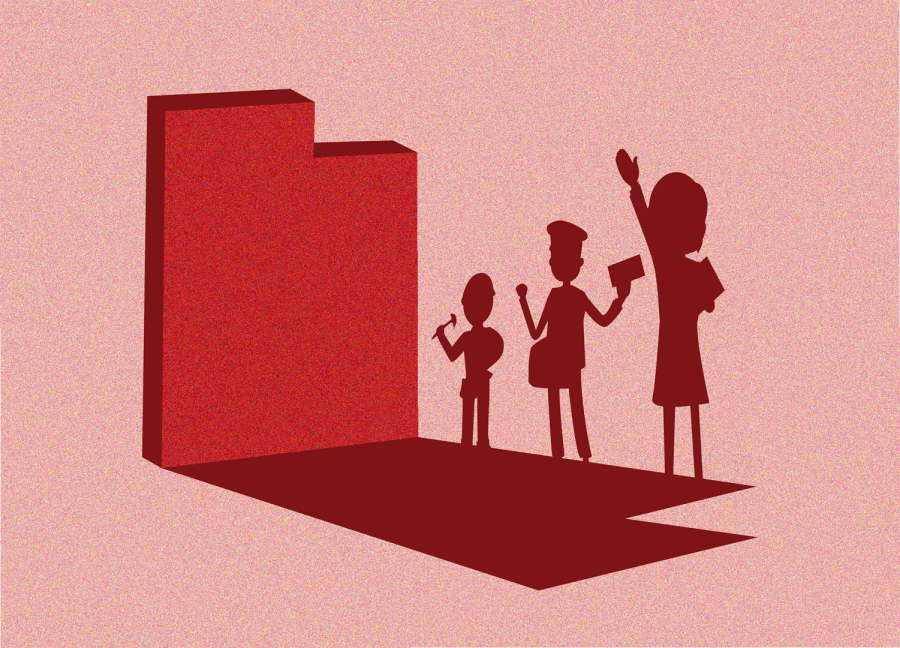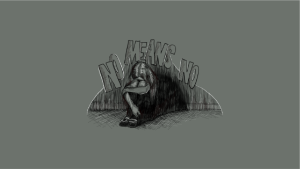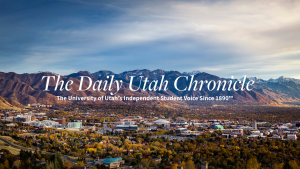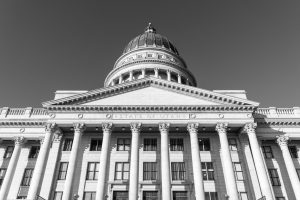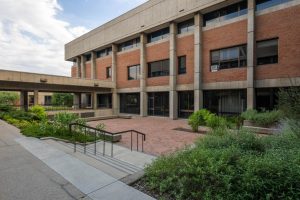Cushman: Protect Utah Outdoor Workers From Dangerous Environmental Conditions
(Graphic by Mary Allen | The Daily Utah Chronicle)
October 11, 2022
Mass lockdowns during the pandemic deeply impacted the American workforce, especially as many frontline workers faced terrible working conditions while the rich grew richer. Now, in the aftermath, we’re seeing a growing push for workers’ rights around the United States. Even so, however, Utah remains one of the worst states to work in. Our state ranked 44th this year, with its notable lack of worker protections contributing to this low score.
Utah’s outdoor workers face some of the hardest work environments, due in part to the nature of laboring outdoors but also from exposure to Utah’s bad air and intense heat. Our state needs to prioritize creating safeguards to protect Utah’s outdoor laborers from our climate.
Environmental Dangers to Utah Workers
Bad air and heat create dangerous outdoor conditions in Utah. Our state ranks 46th in the nation for air quality based on data analyzing chemical pollution and associated health dangers. Cities generally have worse air quality because of more concentrated pollution. Last summer, air quality in Salt Lake City was some of the worst on the planet after large amounts of wildfire smoke blew into our state from California. At the time, health department recommendations included wearing N95 masks, keeping doors and windows closed and using air purifiers.
Utah’s air quality, while not reaching the same dangerous levels as last summer, seems set to keep getting worse. Our fast-growing population and the extra driving that comes with it, wildfire smoke and intense drought conditions all create bad air conditions. This puts Utah residents at risk, with one Harvard study showing that even on green air quality days, pollution could cause health problems and death in Utah’s elderly population.
Beyond this, our state faces growing concerns about heat. In early September this year, Utah broke heat records every day for a week. Utah’s climate keeps getting hotter, warming about two degrees in the last century, and Utahns feel it through extreme heat and health advisories. Urban areas like Salt Lake City exacerbate the danger of heat levels due to the heat island effect. Lots of structures and roads combine with minimized greenery to elevate temperatures. This heat, urban and otherwise, resembles our air quality in seeming like it will only keep getting worse as climate change warms our planet and state.
These climate concerns can have disastrous health consequences. Bad air can cause burning eyes, runny nose, bronchitis, worsening of existing heart and lung diseases and even premature death. Extreme heat conditions lead to more work-related injuries, heat stroke and dizziness. Heat stroke itself can result in seizures and death in extreme cases.
While many Utahns can take preventative measures like minimizing outdoor time and using an air purifier, Utah’s outdoor workers do not have this reprieve during their work day. Utah has the second highest number of construction workers of any state. We also have a large agricultural industry, with agriculture and agribusiness employing more than 100,000 people. Growing up, I saw many of my classmates in middle and high school earning extra money by moving pipe or milking cows. Pipe needs moving and cows need milking regardless of air quality or temperature. Most outdoor jobs don’t include time off or indoor work options.
Utah’s outdoor workers already face greater risks of sun exposure and burns, fumes and debris from construction and physical injury from strenuous activity. These dangers simply don’t affect those of us who work in offices or indoors. Utah’s worsening climate adds even more risk to their jobs, especially for those in urban areas that experience worse air quality and heat.
Construction worker Wyatt Perides told KUER how he spends most days working eight to 15 hours outside regardless of weather or air conditions. Despite suffering from lifelong asthma and having bad air affect that condition, he continues to work on bad air days to “put food on the table.” He even worked during the extreme bad air conditions caused by California wildfires last summer despite his breathing becoming difficult.
Create Better Protections for Utah Laborers
Workers in Utah face environmental health concerns with little to no protection, but it doesn’t have to be this way. California has created laws to protect against heat illness at work. This includes requirements that employers not only provide clean water for employees, but that at least one quart is available to each employee each hour. Workers also need to be provided shade and employers need to establish heat illness prevention plans for their workplaces. California is not the only state to acknowledge environmental health concerns. This summer in Oregon, a policy requiring employers to provide respirators to agricultural workers breathing unhealthy levels of wildfire smoke went into effect.
In Utah, the impetus is on our legislature to protect outdoor workers with policies aimed to limit occupational environmental health impacts. Legislation modeled after protections in other states would be a good start. Additionally, Utah cities, where heat and air quality are worse, have a responsibility to incorporate more green spaces and focus on clean air. Building with outdoor workers in mind not only protects their health, but makes clean, healthy outdoor spaces that benefit every Utahn.
In a state where we have extreme heat, lots of wildfires, smoke exposure and generally bad air, we can’t afford to be reckless with the health of Utah employees. I want to live somewhere where everyone can go to work and feel protected. Outdoor laborers should not be forgotten in that conversation.


